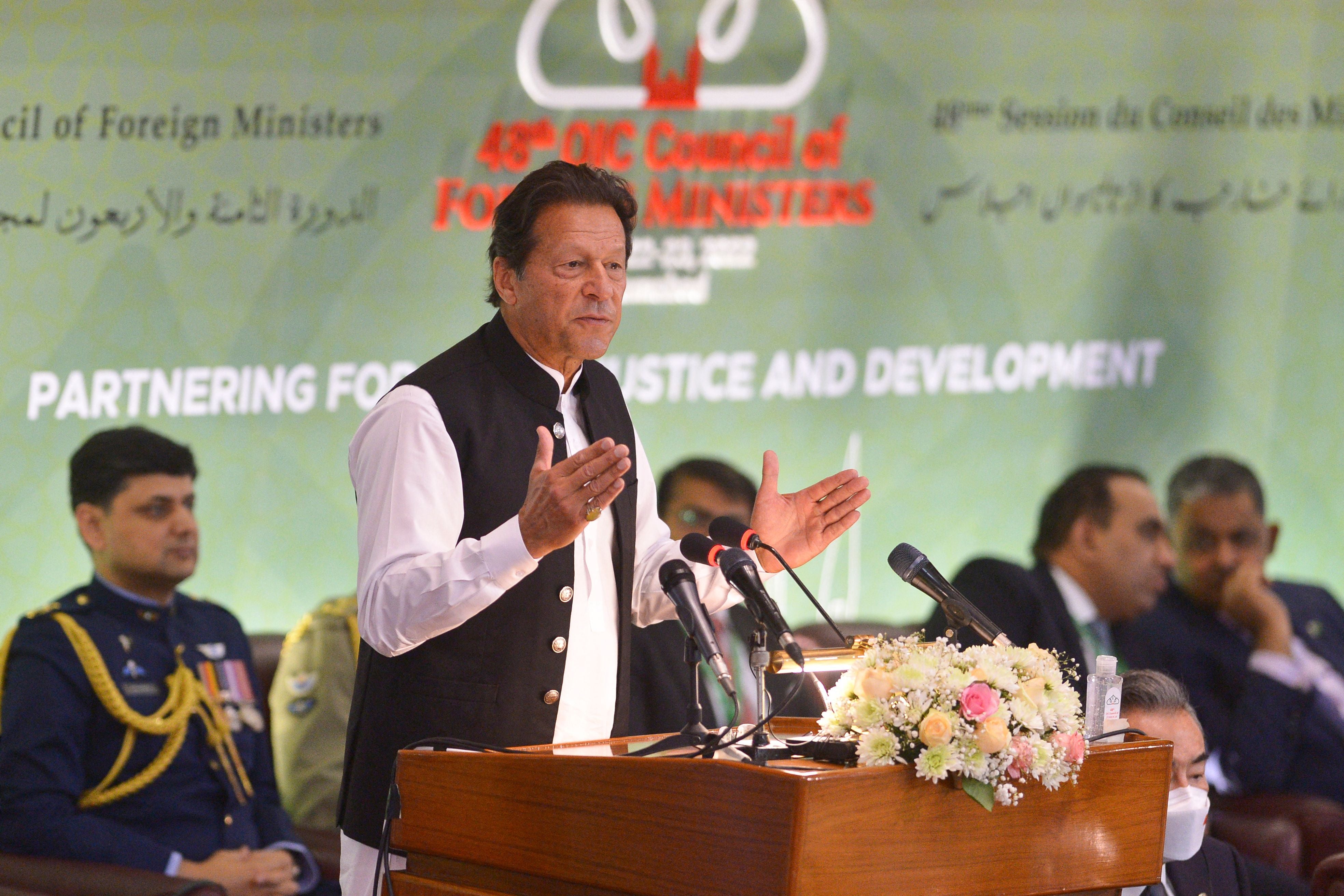Pakistan PM Imran Khan suggests he might not accept vote to oust him
Mr Khan urges his supporters to take to the streets on Sunday ahead of the no-confidence vote

Your support helps us to tell the story
From reproductive rights to climate change to Big Tech, The Independent is on the ground when the story is developing. Whether it's investigating the financials of Elon Musk's pro-Trump PAC or producing our latest documentary, 'The A Word', which shines a light on the American women fighting for reproductive rights, we know how important it is to parse out the facts from the messaging.
At such a critical moment in US history, we need reporters on the ground. Your donation allows us to keep sending journalists to speak to both sides of the story.
The Independent is trusted by Americans across the entire political spectrum. And unlike many other quality news outlets, we choose not to lock Americans out of our reporting and analysis with paywalls. We believe quality journalism should be available to everyone, paid for by those who can afford it.
Your support makes all the difference.Pakistan’s prime minister Imran Khan has suggested that he might not accept a vote to oust him, a move he alleged was being orchestrated by the US.
Opposition parties have put forward a no-confidence motion due to be voted on Sunday against Mr Khan, saying that he has failed to revive an economy battered by the pandemic or fulfil promises to make his government more transparent and accountable.
“How can I accept the result when the entire process is discredited?” Mr Khan told a select group of foreign journalists at his office on Saturday. “Democracy functions on moral authority - what moral authority is left after this connivance?”
“The move to oust me is blatant interference in domestic politics by the United States,” he said, terming it an attempt at “regime change”.
Mr Khan, who has already lost his parliamentary majority after allies quit his coalition government and joined the opposition, urged his supporters to take to the streets on Sunday ahead of the vote.
Hours before he spoke, the head of the army, General Qamar Javed Bajwa, had said Pakistan wanted to expand its ties with Washington.
US president Joe Biden has not called Mr Khan since taking office, but the White House has denied that it is seeking to topple him.
Relations are strained in particular over Afghanistan, where Washington accused Pakistan of backing the successful Taliban insurgency that led last year to a chaotic withdrawal of US and allied forces.
Yet while the government has pursued multi-billion dollar development deals with China, the US’ strategic rival, the army appears keen not to jeopardise relations with Washington, which has in the past supplied it with billions of dollars in military aid.
Gen Bajwa told a security conference in Islamabad that “we share a long history of excellent and strategic relationship with the United States, which remains our largest export market”.
He noted that Pakistan had long enjoyed close diplomatic and business relationships with China, but added: “We seek to expand and broaden our ties with both countries without impacting our relations with the other.”
The US embassy in Islamabad did not immediately reply to a request for comment.
Reuters




Join our commenting forum
Join thought-provoking conversations, follow other Independent readers and see their replies
Comments